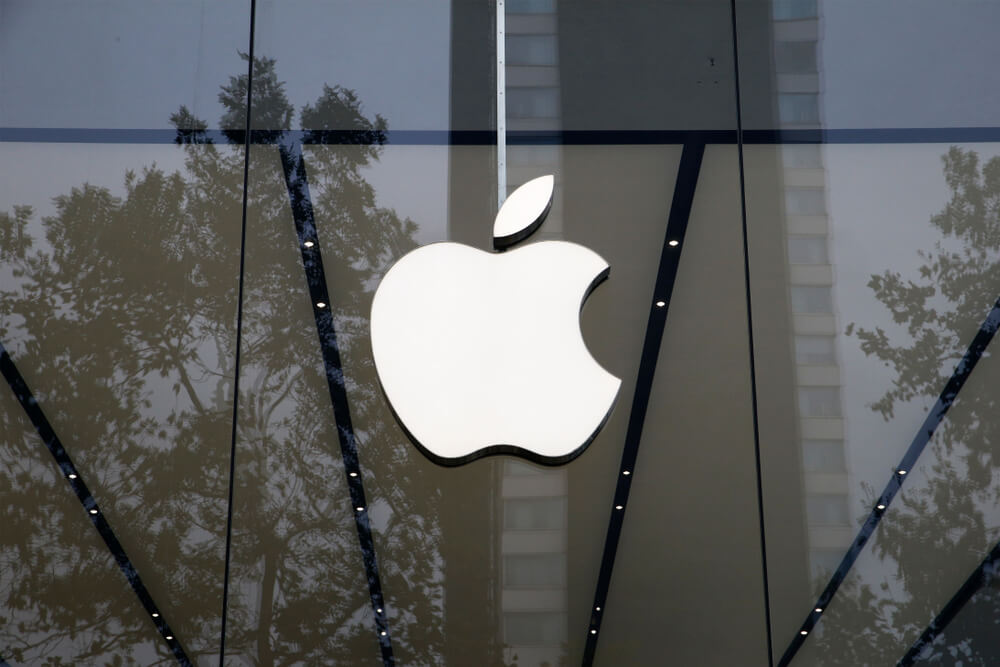Apple Inc. reported its third-quarter earnings after Thursday’s close, and to say the company knocked it out of the park is an understatement.
Sales were up 11% year over year. This despite major supply chain disruptions and Apple (Nasdaq: AAPL) closing many of its stores for part of the quarter.
Apple beat expectations in about every possible way.
Earnings per share came in at $2.58 versus the analyst consensus estimate of $2.04.
Revenues were expected to be $52.3 billion and instead came in at $59.7 billion. (Revenue beats like this tend to get more attention since revenues are harder to manipulate with creative accounting.)
Even sales of the stodgy old iPhone surprised to the upside. Analysts expected $22.4 billion in sales.
They got $26.4 billion.
The only line item on the earnings release that comes across as anything other than amazing was Apple’s services revenues, which were in line with analyst expectations at $13.2 billion.
But, year over year, services were still up a respectable 15%.
Services are a big part of Apple’s future. Service revenue is “stickier” than hardware revenues. When the economy hits a rough patch, you’re more likely to delay a new phone upgrade than you are to cut your Spotify or Netflix subscription.
So, what comes next for Apple? Let’s see how the stock ranks using Money & Markets Chief Investment Strategist Adam O’Dell’s rating system.
How Apple Stock Ranks
Apple ranks a 78 overall, putting it in good company. Only 22% of stocks rate higher. The stock rates exceptionally well in volatility and quality, but it loses some points on value and size.
Let’s break it down.
- Volatility — When we rank for volatility, a higher ranking means lower We want stocks that are stable. Well, Apple appears to be as steady as they come. With a volatility rank of 96, only 4% of the stock’s in Adam’s universe have lower volatility.
- Quality — Apple also ranks exceptionally well on quality, coming in at 96. Apple’s ridiculously high return on equity, cash flows, and high margins drive this high score. Apple mints money, and it shows.
- Momentum — It’s not easy for larger companies to maintain high momentum, which is why Adam views size as a negative in his ranking system. It takes a lot less buying pressure to send a $100 million company higher than it does to send a $1.6 trillion company like Apple higher. All the same, Apple ranks high here, coming in at an 82. Only 18% of stocks exhibit better momentum.
- Growth – Apple’s growth ranking comes in at 75, putting it in the top quarter of all stocks. Given the growth problems plaguing most non-tech companies in the age of COVID-19, I wouldn’t be surprised to see that ranking go higher in the quarters ahead.
- Value – Alas, growth comes at a price. Apple is not cheap at current prices, ranking at just 23. That means 77% of all stocks are cheaper. Expensive stocks are often expensive for a reason. But this still causes Apple to lose some points.
- Size – And finally, we get to size. Apple is a massive $1.6 trillion company by market cap, which is nearly the size of Canada’s annual GDP. Apple is larger than 99.9% of all stocks in Adam’s universe, which takes away almost all points, ranking it at only 0.1 in the size factor.
What You Should Do Now
Worth noting: Apple announced a 4-for-1 stock split in its earnings release. That means for every stock of Apple you own today, you’ll soon own three more.
This doesn’t fundamentally change the value of your holdings. You’ll have four times as many shares. Each will be worth 25% of the old shares. But stock splits do make it easier for smaller investors to buy in. And splits tend to improve liquidity. So, we’ll throw this in as a bonus.
I’m a little concerned about market valuations at the moment.
But investors today are flocking to quality companies, and they’re willing to pay up for them. Ultimately, with an overall ranking of 78, including high momentum, it’s safe to call Apple a winner.
• Money & Markets contributor Charles Sizemore specializes in income and retirement topics, and is a frequent guest on CNBC, Bloomberg and Fox Business.
Follow Charles on Twitter @CharlesSizemore.
